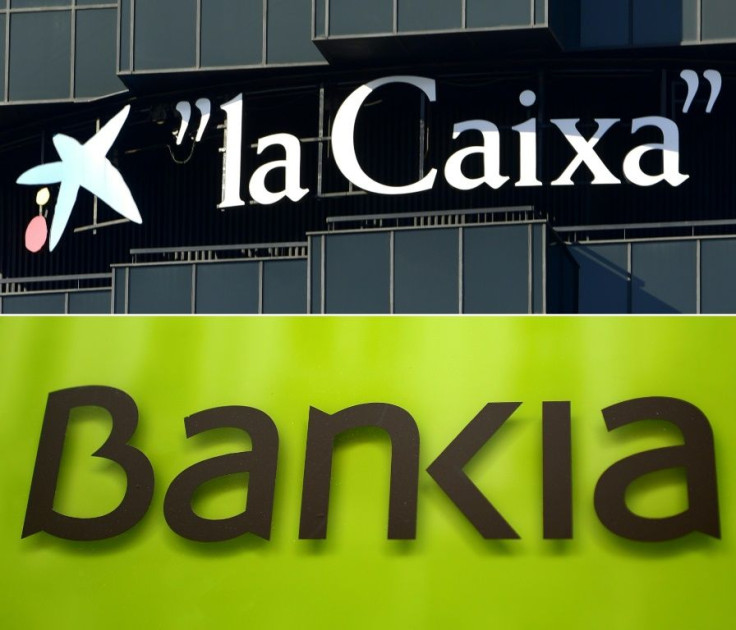Spain's CaixaBank, Bankia Green Light Mega Merger
Directors from CaixaBank and Bankia Thursday approved their merger into Spain's biggest lender in a move which will transform the landscape of Spanish banking.
A source close to the deal said the board of directors of both banks approved the merger, details of which will be made public on Friday.
The negotiations involved Bankia's biggest shareholder, the Spanish government.
The merger creates the country's largest bank with combined assets of around 664 billion euros ($787 billion) in Spain, Renta 4 Banco analysts say, putting the new entity ahead of Santander or BBVA, both of which have a more international presence.
Under terms of the deal, shareholders in CaixaBank, Spain's largest domestic bank, would hold 75 percent of the new entity, while Bankia shareholders would take the remaining 25 percent.
The Spanish state, which currently holds just under 62 percent of Bankia, will hold a 14-percent share in the new group, press reports said.
In 2012, the Spanish government stepped in to save Bankia from collapse, spending 22 billion euros ($26 billion at current exchange rates) to bail out a bank that was seen as a symbol of financial excess at a time when the Spanish economy was mired in crisis.
The huge merger comes in a very difficult economic context for Spain which has been particularly badly hit by the coronavirus pandemic, with gross domestic product collapsing by 18.5 percent in the second quarter.
The deal should enable the two banks to reduce costs and offers them "a way of trying to improve profitability," said Xavier Vives of the IESE Business School.
Another advantage of the merger is the geographical footprint of each bank, with Bankia more present in Madrid and in the centre of the country, while CaixaBank is well-established in the northeastern Catalonia region, said Robert Tornabell, a banking specialist at ESADE business school.
The financial structure of the deal will allow CaixaBank to access tax breaks worth "several billion" euros, thus providing the new bank the wherewithal to "finance staff restructuring and branch closures," he said.

Press reports suggested the takeover would result in nearly 8,000 jobs being axed. The two banks currently employ 51,000 staff spread across 6,000 branches.
Despite the staffing issues and the competition concerns raised by the deal, which will create a bank that will manage nearly a third of all Spain's home loans, the Spanish government has welcomed the tie-up.
"There is a process under way," Economy Minister Nadia Calvino said last week, pointing out that the European authorities have long been encouraging consolidation in the banking sector.
"With this deal, the government is getting rid of one big headache," the Cinco Dias business daily said recently.
Since the Bankia bailout, the government has been trying to offload its 61.8 stake in the bank but economic context has never been right. For now, it has only managed to recover 3.3 billion euros of the 22-billion payout.
Even if its stake in the new entity will be reduced to just 14 percent, that should bring in more money to the state coffers because the new bank will be much more profitable.
However, it will take "several years" for the state get back a sum which will not end up being very much, Tornabell said.
The tie-up will mean the name Bankia disappears from the high street -- a name associated with multiple scandals, particularly that of its floatation in 2011 which attracted thousands of small shareholders who faced ruin several months later when the share price collapsed.
Several months later, the government stepped in and the bank was nationalised.
Bankia's former management team is currently on trial for fraud and falsifying its balance sheet ahead of the failed floatation and if convicted over the scandal, former boss Rodrigo Rato is facing eight-and-a-half years behind bars.
The court is expected to reach a verdict soon.
© Copyright AFP 2024. All rights reserved.





















